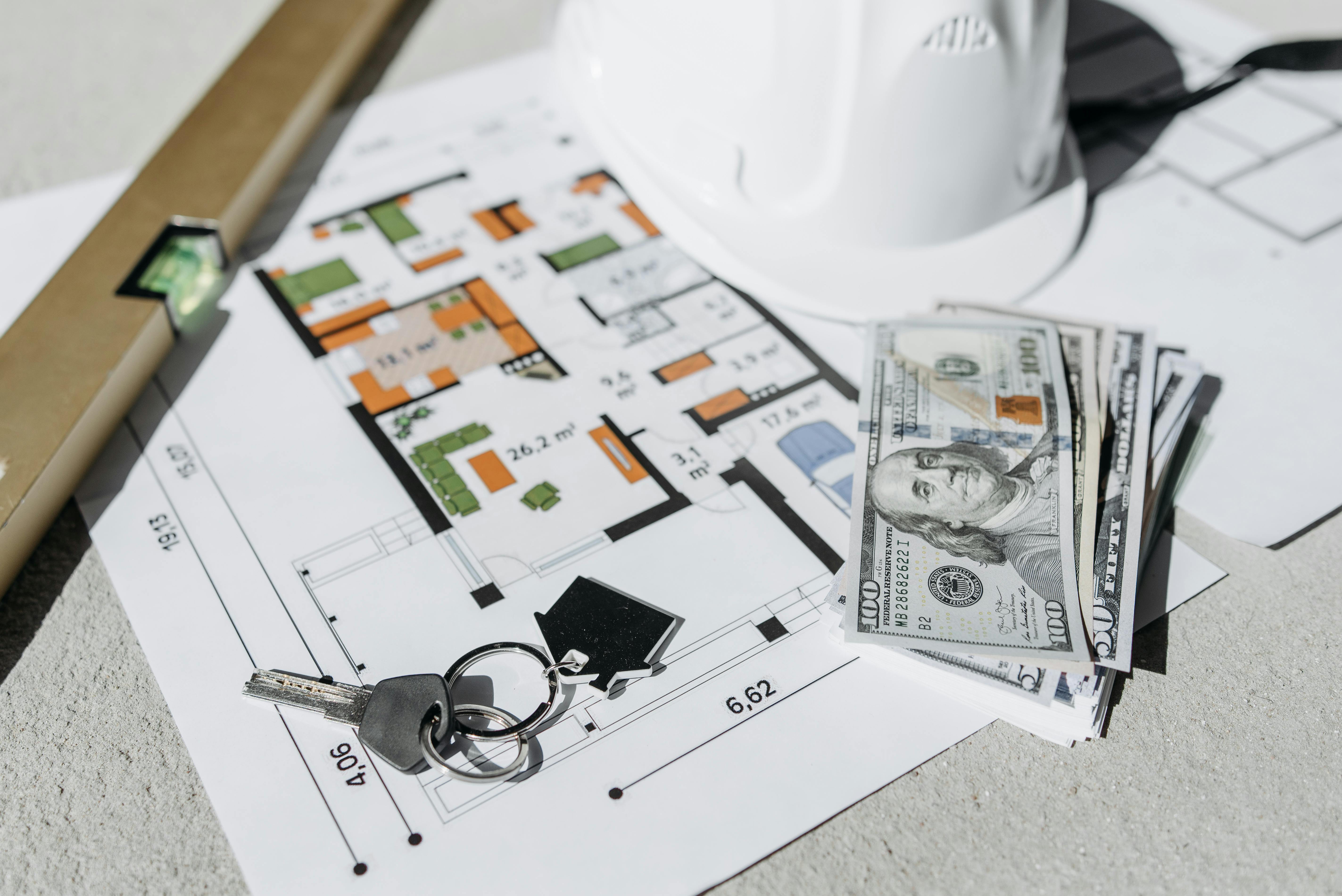The risks of buying with no deposit have become an increasingly important consideration as more Australians explore alternative pathways into property ownership. Some purchasers are looking at 100% loan packages as a solution since rising property values and rising rental expenses are making it harder to save traditional deposits.
Faster access to the housing market may be possible with such arrangements, but there are substantial financial risks involved that need to be carefully considered. It's crucial to comprehend these possible obstacles and put precautions in place to protect your finances before committing to a no-deposit mortgage.
Understanding Mortgages Without a Deposit
The full purchase price of a house can be borrowed with no deposit mortgages, commonly referred to as 100% loan-to-value (LTV) mortgages. Since the 2008 financial crisis, these products have mostly vanished, although they have recently reappeared to aid with the housing affordability crisis.
These days, lenders such as Skipton Building Society provide Track Record mortgages, which are intended especially for tenants who have a history of reliable payments. Even in the absence of conventional deposit savings, these products acknowledge that consistently paying rent shows your ability to cover housing expenses.
Nevertheless, convenience has a high price. Just 0.3% of UK mortgages are no deposit plans, according to recent data. This indicates that they are not widely available and that lenders are cautious about the risks involved. Purchasing without a deposit carries dangers that go well beyond increased interest rates; these include possible equity traps and fewer possibilities for future financing.
The Principal Dangers You Must Recognise
Your Greatest Risk to Your Finances: Negative Equity
When your property's value drops below the amount of your outstanding mortgage, you have negative equity. Without a buffer for deposits, even little price decreases can result in you owing more than the value of your house.
Take the following example: You purchase a £400,000 home with a 100% mortgage. Your house would be worth £360,000 if property values dropped by just 10%, but you would still owe £400,000. You currently have £40,000 in negative equity.
Financial analysts caution that high LTV borrowers may suffer severe consequences as market projections indicate possible 10% price reductions. Being stuck in your home and not being able to move or remortgage until the housing market improves are some possible outcomes of negative equity.
This risk is especially pertinent given the state of the market. According to data on mortgage lending in the UK, lending with LTV ratios more than 90% hit 7.1% in 2025, the highest percentage since 2008. This pattern suggests that more and more purchasers are taking on riskier bets.
Higher Interest Rates and Increased Costs
Generally speaking, no deposit mortgages have higher interest rates than conventional mortgages. Standard mortgages with deposits have rates of 4.19%, while 100% mortgage rates currently start at 5.29%.
There are significant long-term expenses associated with this discrepancy. The rate differential might cost you an extra £200 to £300 per month and tens of thousands of pounds over the course of the loan period on a £300,000 mortgage spread over 25 years. Utilising resources such as a service calculator will assist you in comprehending the actual financial consequences of various mortgage arrangements.
Limited Future Options and Remortgage Restrictions
Your alternatives may be severely limited when your original mortgage agreement expires if you have negative equity. If the value of your property drops below the amount owed on your loan, you could have to accept a higher standard variable rate and continue with your present lender.
This limits your access to better offers from the larger market. Refinancing becomes challenging or impossible until upping property values and restoring positive equity. This restriction may result in extended exposure to high interest rates, which would increase financial hardship and decrease overall financial adaptability.
Reduced Property Purchasing Power
In the absence of bank funds, your maximum property value is determined by your borrowing ability. The majority of lenders provide loans that are approximately 4.5 times your yearly income, so a salary of £50,000 normally covers up to £225,000. Your options for properties may be considerably more limited by this restriction than those of purchasers who have made deposits.
Smart Protection Strategies
Strengthen Your Financial Foundation
- Savings for emergencies equal to six to twelve months' worth of mortgage payments
- stable work for a minimum of 12 months with steady income
- Excellent credit (the best rates usually require a score of 700+)
- Very little debt that could put a pressure on your finances
- Whole-person income protection insurance
Lacking the safety net that deposits offer makes developing financial resilience even more important. To improve your overall situation, think about looking into thorough financial planning tools.
Strategic Property Selection
Making a thoughtful choice is crucial to reducing financial risk when buying a house without deposit protection. Pay attention to regions that have a lot of room for long-term growth, as evidenced by a variety of economic activity, steady employment, and the development of infrastructure.
Prioritise properties with conservative local market prices to prevent exposure to negative equity and lower the chance of overpaying. Pick properties that are in good shape and need few repairs or upgrades up front so that your funds are directed toward repayments rather than enhancement expenses.
Additionally, give preference to areas with good transportation connections and easy access to necessary facilities and services. Particularly during recessions, these attributes boost long-term value resilience and tenant appeal. Steer clear of expensive suburbs and high-end houses where equity positions could be negatively impacted by market corrections.
Viable Alternatives to Consider
Low Deposit Government Schemes
For qualified first-time homebuyers, the First Home Owner Grant is available in the majority of Australian states and offers immediate financial support.
Shared Equity Plans: A compromise between renting and full ownership, these plans allow the government to share in future increases in property value while lowering the required deposit.
Family Assistance Options
Building Your Deposit More Effectively
- High-yield savings plans that offer bonuses for regular contributions
- The government offers eligible savers co-contribution programs.
- Chances for supplemental income to increase savings without sacrificing principal work
- Rental agreements that are shared to temporarily lower housing expenses
The optimisation of these tactics can be aided by expert financial advice. Comprehensive financial planning programs are one example of a resource that provides organised methods for increased wealth accumulation and safer homeownership.
Making the Right Decision
Assessing your long-term financial stability realistically is necessary before pursuing a no deposit mortgage. Examine your ability to make repayments that might be 20–30% more than your current rent, if you have a job that will be stable for the next 5–7 years, and whether you are willing to remain in the house even if the market makes it impossible to sell.
Additionally, think about whether you have looked into other choices for becoming a homeowner. Although first-time homebuyers continue to be active, making up 31.4% of all loans in 2025, mortgage possessions have also risen by 12.3% on a quarterly basis. This emphasises that financial prudence is necessary, not just hope.
If a no-deposit route is still suitable for you, take proactive measures to protect your money. Get independent legal counsel, carefully review all product terms, and make sure you are aware of all related expenses and responsibilities.
What to Do Next: Creating Financial Security
Those that are financially solid, have done the required research, and are aware of the long-term commitment needed may find that no deposit mortgages are a good way to become homeowners.
Buyers must take into account all ramifications after making the original purchase, though, as they are not always appropriate. Whether a no deposit mortgage is the most secure option or if other routes would provide more financial stability can be determined with the aid of honest self-evaluation, thorough financial planning, and knowledge of government programs or family support possibilities.
Being a homeowner takes decades, and jumping into it too soon without enough preparation or a cushion can put a lot of financial strain on you. Building even a modest deposit while looking into aid programs can often provide a more robust base.




.jpg)







